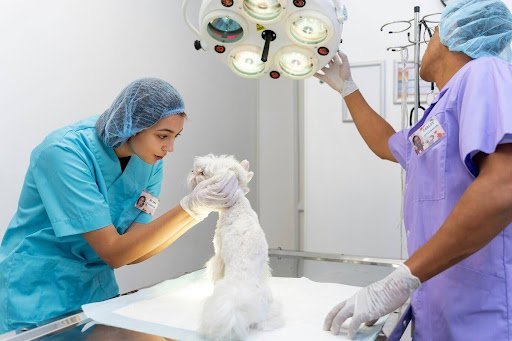Ever encountered Veterinary MRI, the unsung hero in animal healthcare? Say hello to Veterinary Magnetic Resonance Imaging (MRI), the groundbreaking innovation reshaping the way we tend to our beloved furry companions.
With advanced technology, this unique solution generates detailed images of internal structures, assisting veterinarians in pinpointing various conditions with precision. Veterinary MRI enables early detection of potential issues that could otherwise elude notice. It transcends mere diagnostics and emerges as a compassionate superhero, ensuring our pets receive optimal care.
With its ability to capture intricate details, Veterinary MRI is transforming the landscape of animal healthcare, embodying the spirit of innovation in safeguarding the well-being of our beloved companions.
Let’s look into how Veterinary MRI works its magic, providing clear insights into pets’ health and ensuring they get the best care possible. Get ready to discover the fascinating role Veterinary MRI plays in keeping our furry friend healthy as well as happy!
Veterinary MRI
Among the various advanced imaging technologies available, Veterinary Magnetic Resonance Imaging (MRI) has gained high popularity. It has emerged as a game-changer and is known for offering unparalleled insights into the health of our animal companions. Knowing more about the unique role that Veterinary MRI plays in achieving diagnostic precision and treatment helps you make the best decision for your furry friends.
The Power of Veterinary MRI
Veterinary MRI, similar to its human counterpart, utilizes powerful magnets and radiofrequency waves to create detailed, cross-sectional images of the internal structures of an animal’s body. Unlike traditional X-rays or computed tomography (CT) scans, MRI provides a more nuanced view, especially in soft tissues like the brain, spinal cord, and joints. This superior imaging capability is instrumental in achieving diagnostic precision.
Neurological Investigations:
One of the primary areas where Veterinary MRI shines is in the realm of neurological investigations. When dealing with issues such as seizures, behavioral changes, or unexplained neurological symptoms in animals, MRI becomes an invaluable tool.
The use of Veterinary MRI makes it easy for veterinarians to visualize the brain and spinal cord with exceptional detail. It enables the identification of lesions, tumors, or abnormalities that may be contributing to the observed symptoms.
Orthopedic Assessments:
In the field of orthopedics, Veterinary MRI in Maryland is a boon for achieving diagnostic accuracy. Conditions like ligament injuries, joint disorders, and soft tissue abnormalities can be challenging to diagnose accurately through conventional means.
With the high-resolution images produced by MRI, veterinarians can precisely identify and evaluate these issues. With this, Veterinary MRI not only aids in formulating appropriate treatment plans but also contributes to improved prognosis for conditions that may have otherwise gone undetected.
Early Detection of Cancer:
Cancer is a significant concern in veterinary medicine, and early detection of it is often pivotal for successful treatment outcomes. Veterinary MRI plays a crucial role in identifying tumors and evaluating their extent. It helps veterinarians make informed decisions about treatment strategies.
The ability to visualize soft tissues and distinguish between normal and abnormal structures aids in the early diagnosis of various cancers, facilitating timely interventions and improving the chances of a positive outcome.
Cardiovascular Insights:
The cardiovascular system is another area where Veterinary MRI contributes to diagnostic precision. It allows for detailed imaging of the heart and blood vessels, aiding in the diagnosis of conditions such as congenital heart defects, heart disease, and vascular abnormalities. This level of precision is precious when planning complex cardiac surgeries or interventions, ensuring that veterinarians have a comprehensive understanding of the patient’s cardiovascular health.
Reducing the Need for Invasive Procedures
One of the key advantages of Veterinary MRI in achieving diagnostic precision is its ability to provide detailed information non-invasively. In many cases, traditional diagnostic methods might require exploratory surgeries or invasive procedures to uncover the root cause of a health issue. With MRI, veterinarians can often obtain the necessary information without subjecting animals to unnecessary risks, discomfort, or recovery time associated with invasive procedures.
Conclusion
Veterinary MRI is no less than a superhero in the world of animal healthcare. It plays a vital role in achieving diagnostic precision. The detailed images it produces empower veterinarians to unravel the mysteries of complex health issues, leading to more accurate diagnoses and tailored treatment plans. As the field of veterinary medicine continues to advance, the role of MRI in enhancing the lives of our beloved pets is set to become even more integral.


